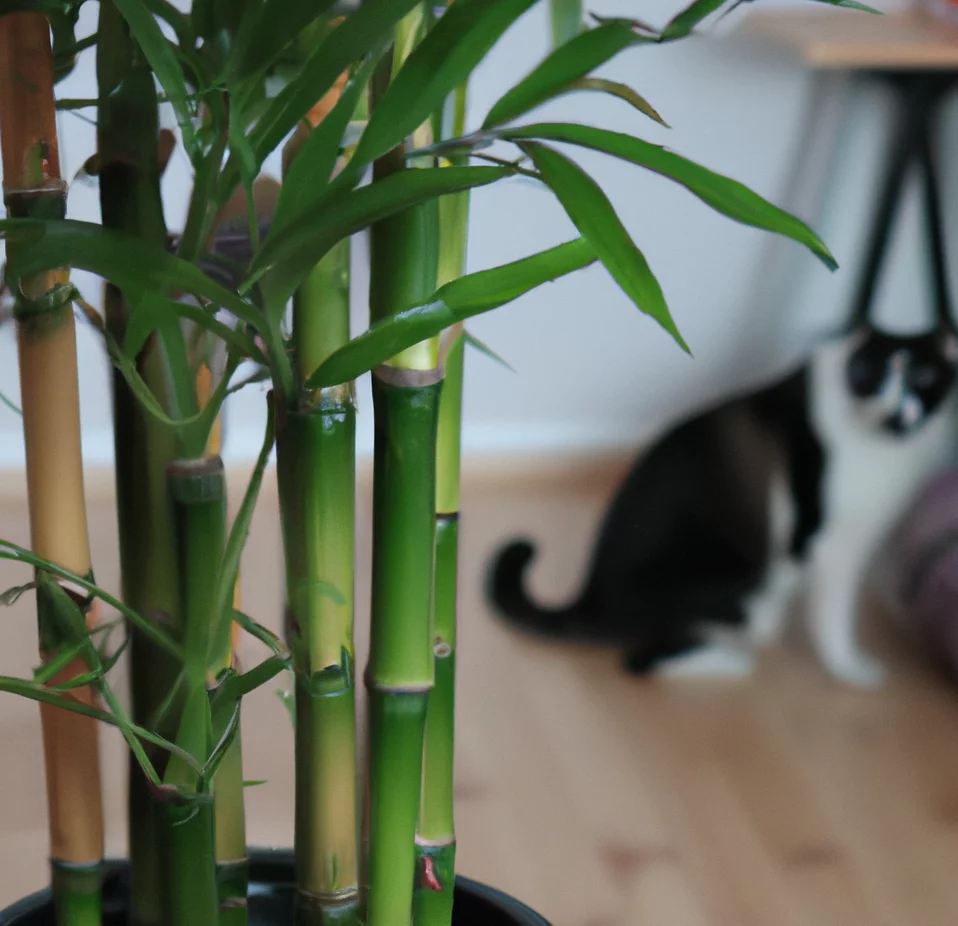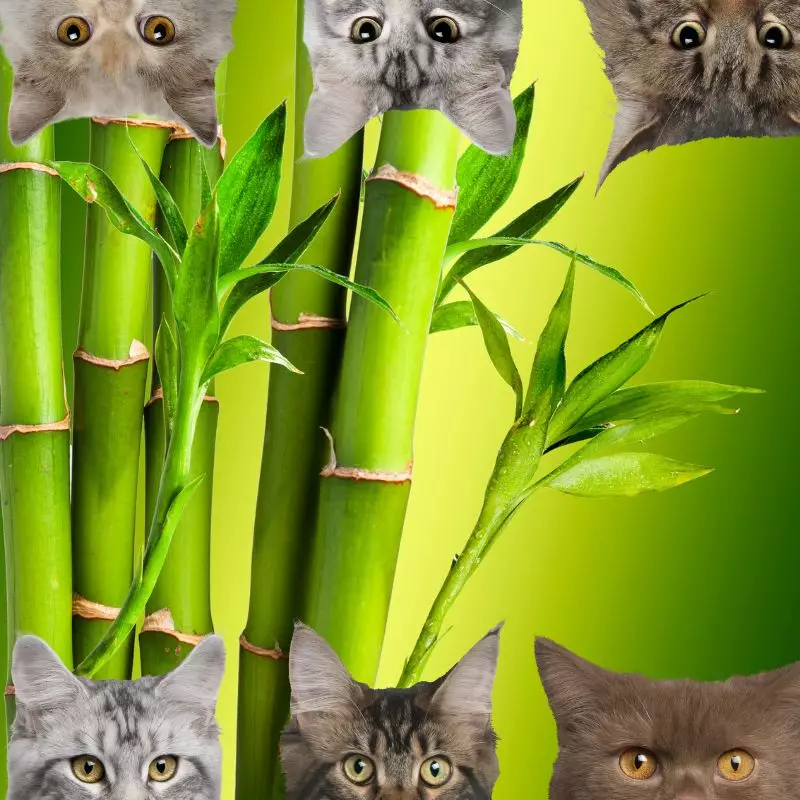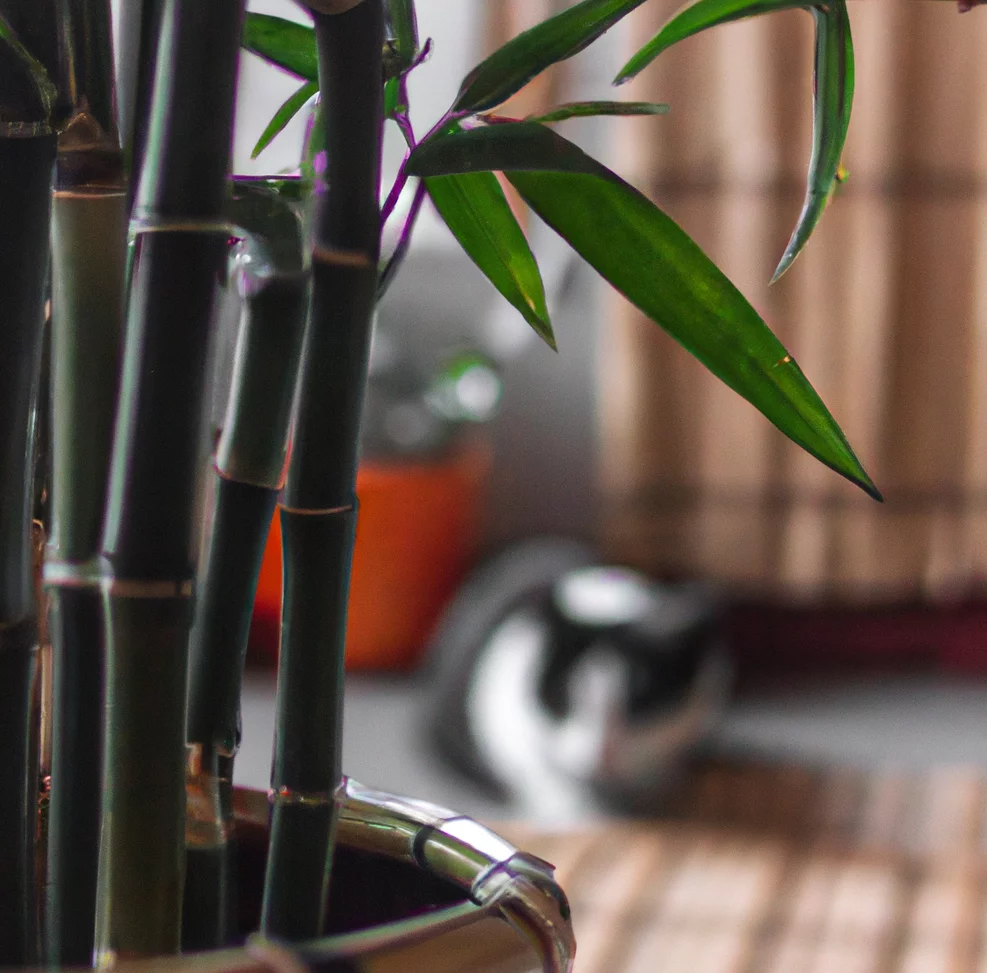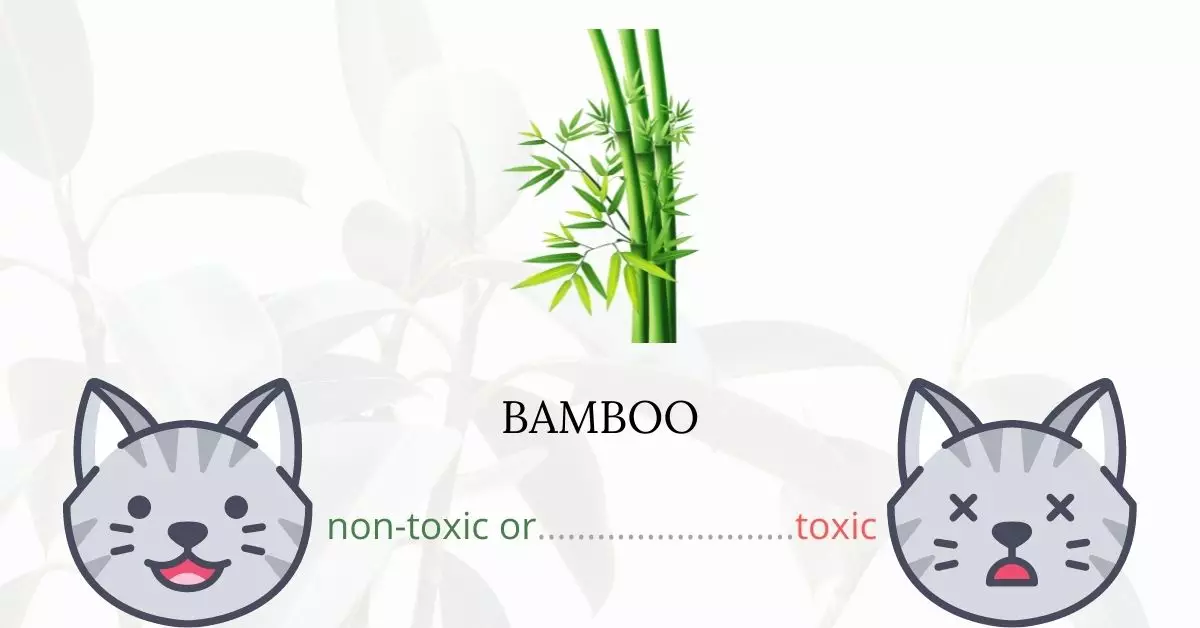Bamboos, with their myriad of varieties, can pose a pertinent question regarding their safety for our feline friends. To provide a succinct response to the concern; it is true that some common kinds of bamboo are generally safe for cats, but not all varieties share this characteristic. Several types of bamboo can indeed be harmful to cats.
This article, penned with the collaboration of a team of seasoned Doctors of Veterinary Medicine (DVMs), aims to shed light on the nuanced aspects of various bamboo types and their respective effects on cats. The contributions from these experienced veterinary professionals enable us to offer accurate and up-to-date information on the potential risks associated with bamboo and other plants. Furthermore, extensive research has been conducted utilizing high-authority resources such as ASPCA and PetMD to ensure the reliability of every piece of information shared herein.
True bambusoideae bamboo species, typically grown outdoors, are non-toxic and are generally considered safe for cats, representing a safe haven for our pets to explore. This detailed investigation will guide you through the different bamboo species, helping cat owners make informed decisions regarding the safety of their pets around these plants.
Can Cats Eat Bamboos?

Yes, cats can consume bamboo. This, however, only applies to real bamboo species from the Bambusoideae subfamily, which does not include “Lucky Bamboo” and “Heavenly Bamboo.”
If your cat has ingested too much plant, they may become ill and vomit, but don’t panic; bamboo is one plant that isn’t dangerous to cats, even if they consumed too much.
Make sure that the bamboo in your home is of a safe kind. If it is, it will not cause any problems with your cat.
What Are Bamboos?

Bamboos are a diversified group of evergreen perennial flowering plants in the grass family Poaceae or Graminaeae’s subfamily Bambusoideae. Bamboo is adaptable and has significant economic and cultural significance in South Asia, Southeast Asia, and East Asia, where it is utilized for construction materials, as a food source, and as a raw commodity, and is frequently featured in arts like bamboo paintings and bamboo work.
Bamboo, like wood, is a natural composite material with a high strength-to-weight ratio that may be used in structural applications. Bamboo has a similar strength-to-weight ratio to lumber, and its strength is comparable to that of a strong softwood or hardwood timber.
Phyllostachis aurea is a bamboo species grown for its decorative value in gardens. In the United States and Australia, it is classified as an invasive plant that crowds out native species and forms a difficult-to-remove monoculture. It is a tall evergreen plant that may grow to be 8 meters tall and 4 meters wide. It can grow invasive, like other bamboos, if kept in warm, wet circumstances and in excellent quality soil with full sunshine. Its rich foliage makes it appealing for decorative and privacy hedges. Its distinctive ‘knotty’ compressed lower internodes make it appealing to collectors.
Keeping Cats Away From Bamboos

Since bamboos are safe for your cat, you may think that there is no need to keep them away from your bamboos at home. Nonetheless, if you want to keep your bamboo safe from any damage they may receive from your cat, you may try training your cat to stay away from it.
You may also limit their outdoor access to prevent them from getting in contact with bamboo and other plants that you may have in your yard.
Plants to Avoid For Your Cats
If you are a cat owner and unsure if the plants growing in your yard are harmful to your cats, check out this list of toxic plants for cats. You can also check our list of non-toxic plants for cats.





